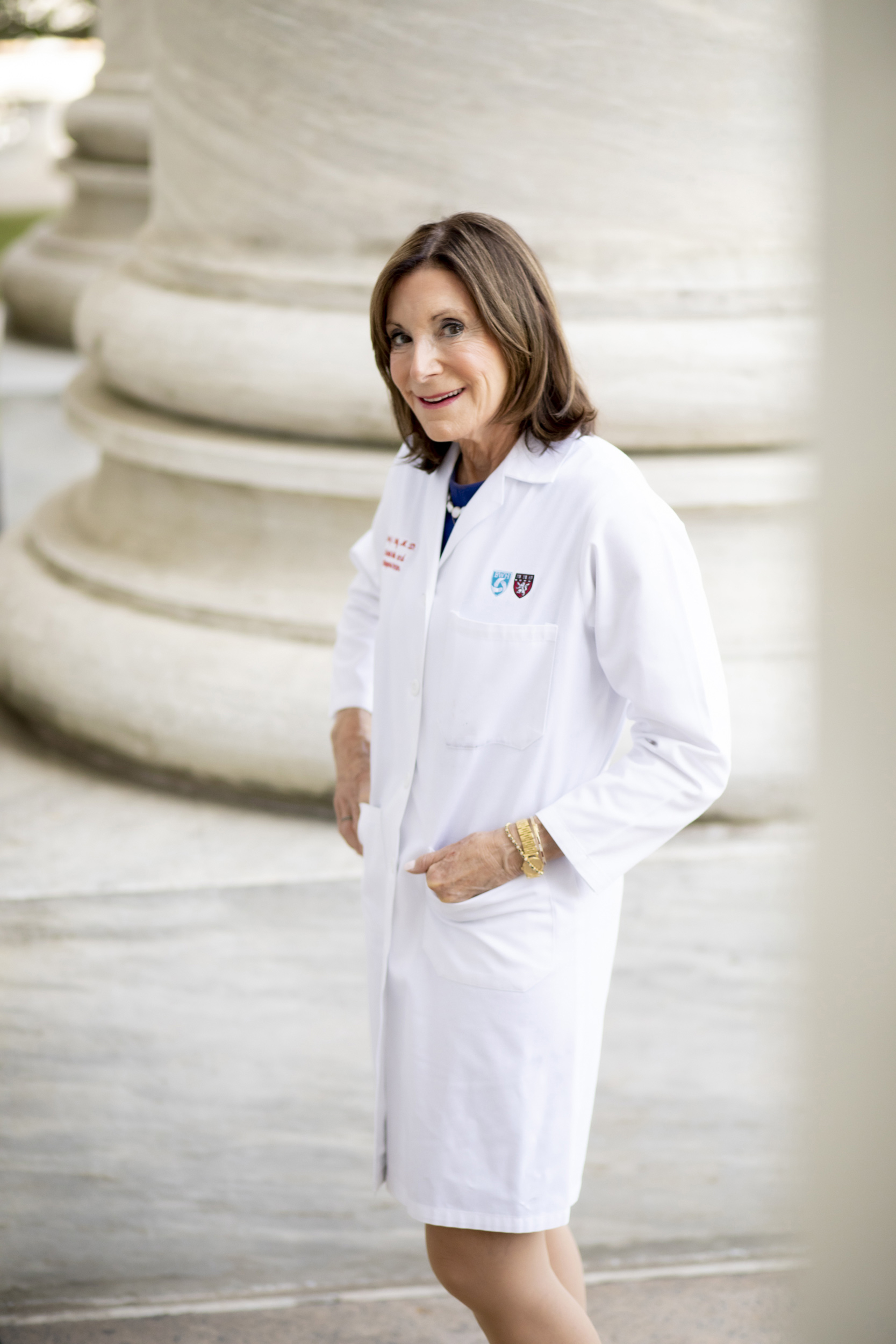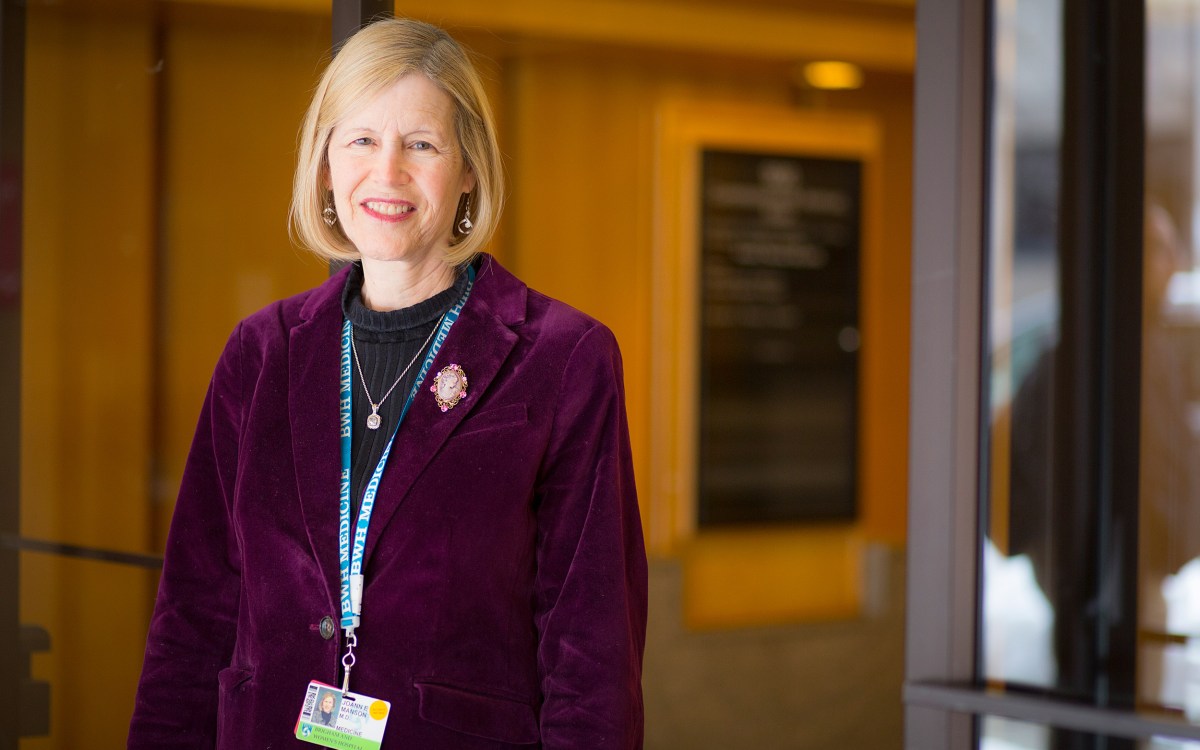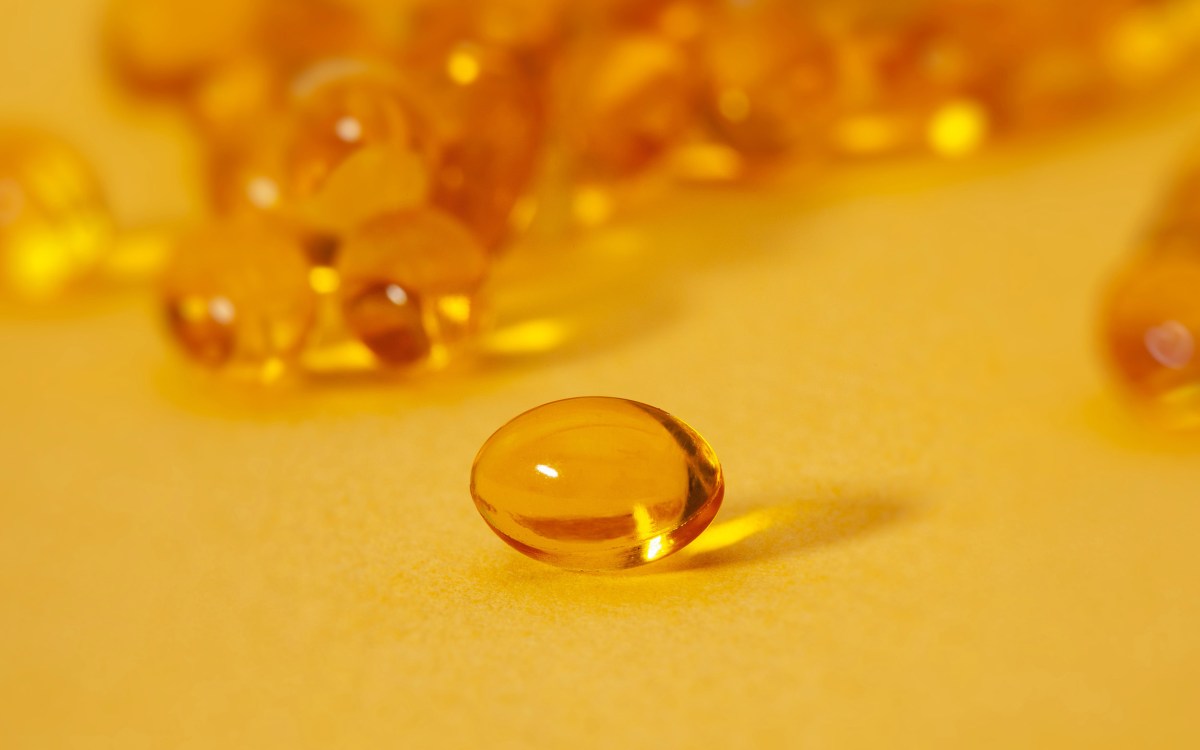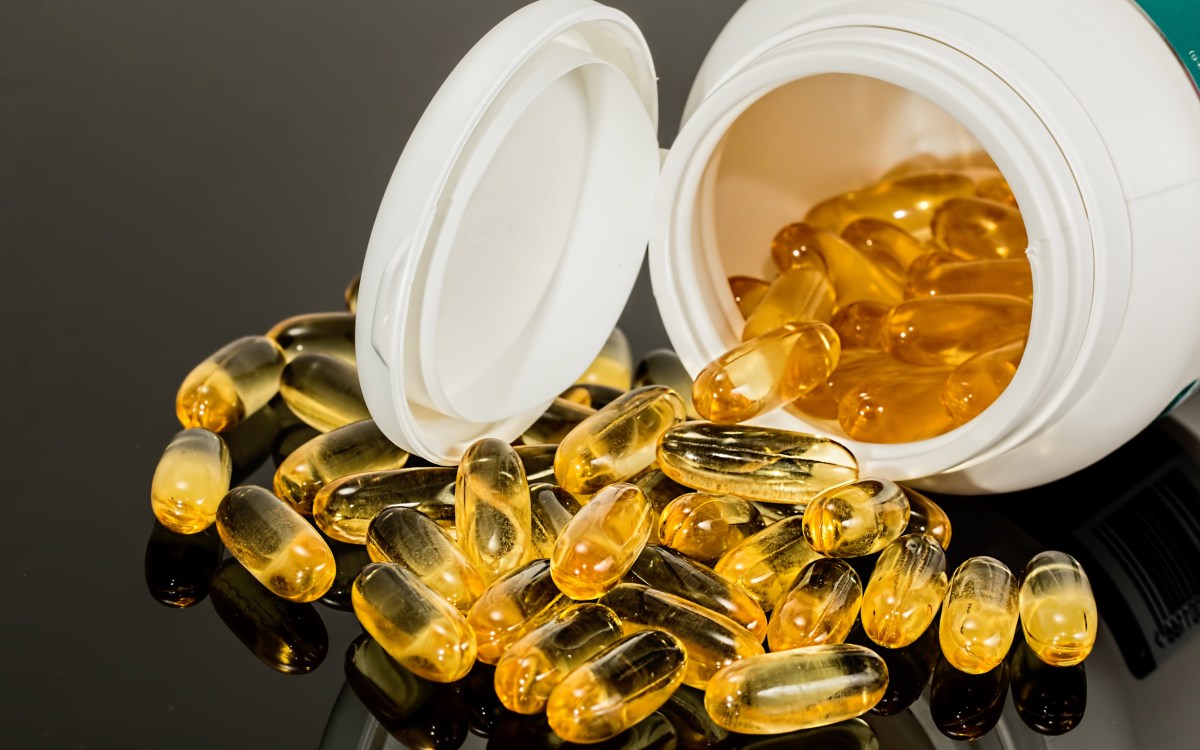Turns out you likely don’t need vitamin D supplements for strong bones
Major study run by Med School professor rejects idea large doses needed by otherwise healthy older adults

Taking extra vitamin D does not reduce bone fracture risk, according to a major study led by the Medical School’s Meryl LeBoff.
Rose Lincoln/Harvard Staff Photographer
Recent findings from a major study of the impact of vitamin D dietary supplements has surprised medical researchers with its resounding rejection of the idea that taking large doses of vitamin D improves bone health in healthy middle-aged and older adults.
The trial upends the idea that older people should take extra vitamin D to ward off osteoporosis and loss of bone mass as they age. The results, from a large, randomized controlled study — considered the gold standard among clinical trial designs — shows that healthy men, 50 or older, and women, 55 or older, who took 2,000 international units of vitamin D daily had no fewer bone fractures than those who took placebo during five years of follow-up.
The fracture study, part of the massive Vitamin D and Omega-3 (VITAL) trial run out of Brigham and Women’s Hospital, was headed by Harvard Medical School Professor of Medicine Meryl LeBoff, chief of the Calcium and Bone Density Section and director of the Skeletal Health and Osteoporosis Center and the Bone Density Unit in the Brigham’s Endocrinology Division. While LeBoff hailed the study’s findings as a clear signal, she also said it is important to highlight that the results apply only to the population studied: healthy adults not preselected for osteoporosis or severe vitamin D deficiency or suffering from gastric and intestinal conditions such as Crohn’s disease, which may interfere with the normal uptake of the vitamin in the body.
“Osteoporosis is a major public health problem. One out of two women 50 and older, and one out of four men, will develop an osteoporotic fracture in their remaining lifetime, so approaches to reduce fractures are really important,” LeBoff said.
“This very widespread screening for vitamin D blood levels should be substantially reduced because it’s not of benefit to most of the population, and it’s adding to health care costs.”
JoAnn Manson, VITAL trial director
About 53.6 million Americans have osteoporosis and/or low bone mass and 2 million fractures occur each year due to osteoporosis, a figure expected to climb to 3 million by 2040 and cost some $95 billion a year, according to background information in the study. About 19 percent of U.S. adults take some kind of vitamin D supplement, up from 5.1 percent in 1999.
LeBoff and JoAnn Manson, director of the main VITAL trial, HMS professor of medicine, and chief of preventive medicine at Brigham, said while the study does cast doubt on the need for supplementation, it doesn’t alter medical science’s understanding of the key role vitamin D plays in the body. The vitamin helps the intestine absorb calcium, a mineral important in bone health, and both agreed that there’s little doubt about vitamin D’s importance to good health.
Rather, they said, the results likely indicate that we need only small to moderate amounts of vitamin D for bone health and the decades-long national efforts to fight bone diseases like rickets by fortifying milk, breakfast cereal, and other foods with vitamin D have had the desired effect.
The study also indicates, Manson said, that laboratory-recommended ranges telling clinicians the blood levels of vitamin D we need are likely too high and not evidence-based — most healthy older adults already get enough vitamin D in their diets and through sun exposure, which prompts the skin to manufacture the vitamin.
“It doesn’t mean everyone should toss their vitamin D pills, especially if their clinician has recommended they take extra vitamin D, for example, if they have bone-health problems or malabsorption,” Manson said. “But this very widespread screening for vitamin D blood levels should be substantially reduced because it’s not of benefit to most of the population, and it’s adding to health care costs.”
Despite the recent results, earlier trials conducted as part of VITAL have shown some benefits do exist from vitamin D supplementation, including reduced chance of metastatic or fatal cancer, an effect likely due to mechanisms that interfere with tumor invasion and growth, Manson said. Another study showed that vitamin D supplements significantly cut the chance of developing an autoimmune condition by 22 percent. Manson, in fact, is continuing her investigation of the potential benefits of vitamin D supplementation and is completing a trial of whether high-dose vitamin D — 10,000 units initially followed by 3,200 units daily for four weeks — can help reduce the severity of COVID-19 symptoms and prevent development of long COVID.
“For other outcomes, because there may be different requirements for different tissues and organ systems, it is biologically plausible that there are benefits from larger amounts of vitamin D than needed for bone health,” Manson said, “and we are drilling down more deeply into that possibility.”
LeBoff said there is a “crisis in osteoporosis care” in the U.S., and many people suffer from osteoporosis and increased fracture risk as they age. While healthy midlife and older adults may not benefit from vitamin D supplementation, they should keep watch for signs of weakening bones because there are several drugs are on the market that can help.
“We have available drugs that decrease fractures,” LeBoff said. “But 10.3 percent of the participants in VITAL, which is the largest randomized controlled trial of supplemental vitamin D in the world, had a history of an osteoporotic fracture and only 4.8 percent were on an osteoporosis medication when they first enrolled in the trial, which is staggering to me.”








